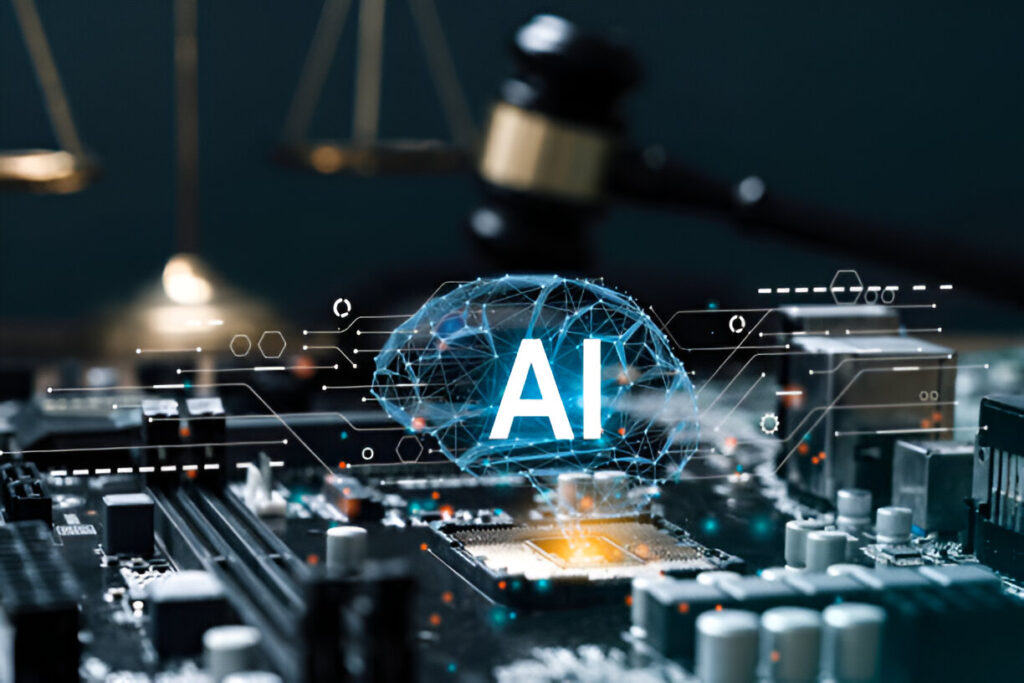Artificial Intelligence (AI) has moved beyond being a futuristic concept to an essential part of our daily lives. From automating repetitive tasks to making complex processes more efficient, AI-powered software is revolutionizing how we work, communicate, and live. This transformation isn’t just limited to high-tech industries; it’s making everyday tasks easier, more accessible, and seamless for individuals and businesses alike.
The Rise of AI in Everyday Applications
AI-powered software leverages machine learning, natural language processing, and data analysis to perform tasks that traditionally required human intelligence. With advancements in AI technology, these tools are now accessible through various apps and platforms, improving productivity and enhancing user experiences across multiple domains.
Key Features of AI-Powered Software:
- Automation: Reducing the need for manual intervention in repetitive tasks.
- Personalization: Tailoring services and recommendations to individual preferences.
- Efficiency: Accelerating processes and improving accuracy.
- Intuitive Interactions: Offering voice, text, or visual interfaces for seamless usability.
Transforming Everyday Tasks
AI-powered software has permeated every aspect of daily life, making tasks more efficient and user-friendly. Here’s how it’s transforming common activities:
1. Communication and Collaboration
AI enhances communication tools, making virtual collaboration easier and more effective. For example, teams can use an AI image generator to quickly create visuals that improve presentations and enhance understanding during meetings.
Examples:
- Email Management: Smart filters and AI-powered assistants like Gmail’s Smart Compose predict responses and organize emails efficiently.
- Virtual Meetings: Platforms like Zoom and Microsoft Teams use AI for live transcriptions, background noise cancellation, and automated scheduling.
- Language Translation: Tools like Google Translate and DeepL provide instant translations, bridging language barriers in real-time.
2. Personalized Productivity
AI tools help users stay organized and optimize their workflows.
Examples:
- Task Management: Apps like Todoist and Notion use AI to prioritize tasks and suggest deadlines based on user behavior.
- Scheduling: Calendar apps like Clockwise and x.ai automate meeting scheduling and manage time zones seamlessly.
- Writing Assistance: Grammarly and ChatGPT provide AI-driven suggestions for improving grammar, tone, and clarity in writing.
3. Health and Fitness
AI-powered applications support health monitoring, fitness goals, and mental well-being.
Examples:
- Fitness Apps: Platforms like MyFitnessPal and Fitbit use AI to track physical activity, suggest workouts, and analyze progress.
- Telemedicine: AI in healthcare apps like Babylon Health assists in diagnosing symptoms and offering medical advice. These advancements are particularly impactful in telemedicine primary care, ensuring patients receive accurate, timely care remotely.
- Mental Health Support: Chatbots like Woebot provide AI-driven mental health coaching and therapy tools.
4. Shopping and Finances
AI is reshaping how people shop, budget, and manage finances.
Examples:
- E-Commerce: AI-driven recommendation engines on Amazon and Shopify suggest products based on past purchases and browsing history.
- Personal Finance: Tools like Mint and YNAB use AI to analyze spending habits, create budgets, and provide financial advice.
- Fraud Detection: Banks and payment platforms use AI to detect and prevent fraudulent transactions in real-time.
5. Entertainment and Leisure
AI enhances how we discover and enjoy content, from movies to music and beyond.
Examples:
- Streaming Services: Netflix and Spotify use AI algorithms to recommend personalized content based on viewing or listening habits.
- Gaming: AI in gaming adapts difficulty levels, generates realistic non-player characters (NPCs), and creates immersive experiences.
- Smart Home Devices: AI assistants like Alexa and Google Assistant automate home tasks, from playing music to controlling lighting.
Benefits of AI-Powered Software
1. Enhanced Productivity
AI automates time-consuming tasks, freeing up time for more meaningful activities and increasing overall productivity.
2. Personalization
AI learns user preferences and behaviors, delivering tailored recommendations and experiences that feel intuitive and efficient.
3. Cost Savings
By streamlining processes and reducing errors, AI-powered software helps businesses and individuals save money.
4. Accessibility
AI tools make technology more inclusive, offering solutions like voice assistants, text-to-speech, and screen readers for users with disabilities.
5. Continuous Improvement
AI evolves through machine learning, constantly improving its accuracy and capabilities as it processes more data.
Challenges and Ethical Considerations
Despite its benefits, AI-powered software comes with challenges:
1. Data Privacy
AI systems require large amounts of user data to function effectively, raising concerns about data security and privacy.
Solution: Users should prioritize apps that are transparent about data use and comply with privacy regulations like GDPR.
2. Bias and Fairness
AI can inherit biases from training data, leading to unfair outcomes or discrimination.
Solution: Developers must train AI on diverse datasets and regularly audit algorithms for bias.
3. Job Displacement
As AI automates routine tasks, concerns about job losses in certain industries persist.
Solution: Focus on reskilling and upskilling workers to take on roles that require human creativity and decision-making.
4. Over-Reliance
Excessive dependence on AI could diminish human critical thinking and problem-solving skills.
Solution: Use AI as a tool to augment, not replace, human decision-making.
The Future of AI-Powered Software
As AI technology continues to advance, its potential applications are limitless. Future developments may include:
- Smarter Virtual Assistants: AI assistants will become more conversational and context-aware, handling complex tasks seamlessly.
- Advanced Predictive Analytics: AI will anticipate user needs, from predicting health issues to suggesting investments.
- Sustainable Solutions: AI will play a key role in addressing global challenges like climate change through smarter resource management and innovative solutions.
Conclusion
AI-powered software is transforming everyday tasks into seamless experiences, making life easier, more productive, and more enjoyable. By automating routine activities, personalizing experiences, and enabling smarter decision-making, AI is reshaping how we interact with technology. While challenges remain, ongoing advancements promise to make these tools even more powerful and accessible, ensuring a future where AI enhances every aspect of our daily lives.
For example, teams can use an AI image generator to quickly create visuals that improve presentations and enhance understanding during meetings.



